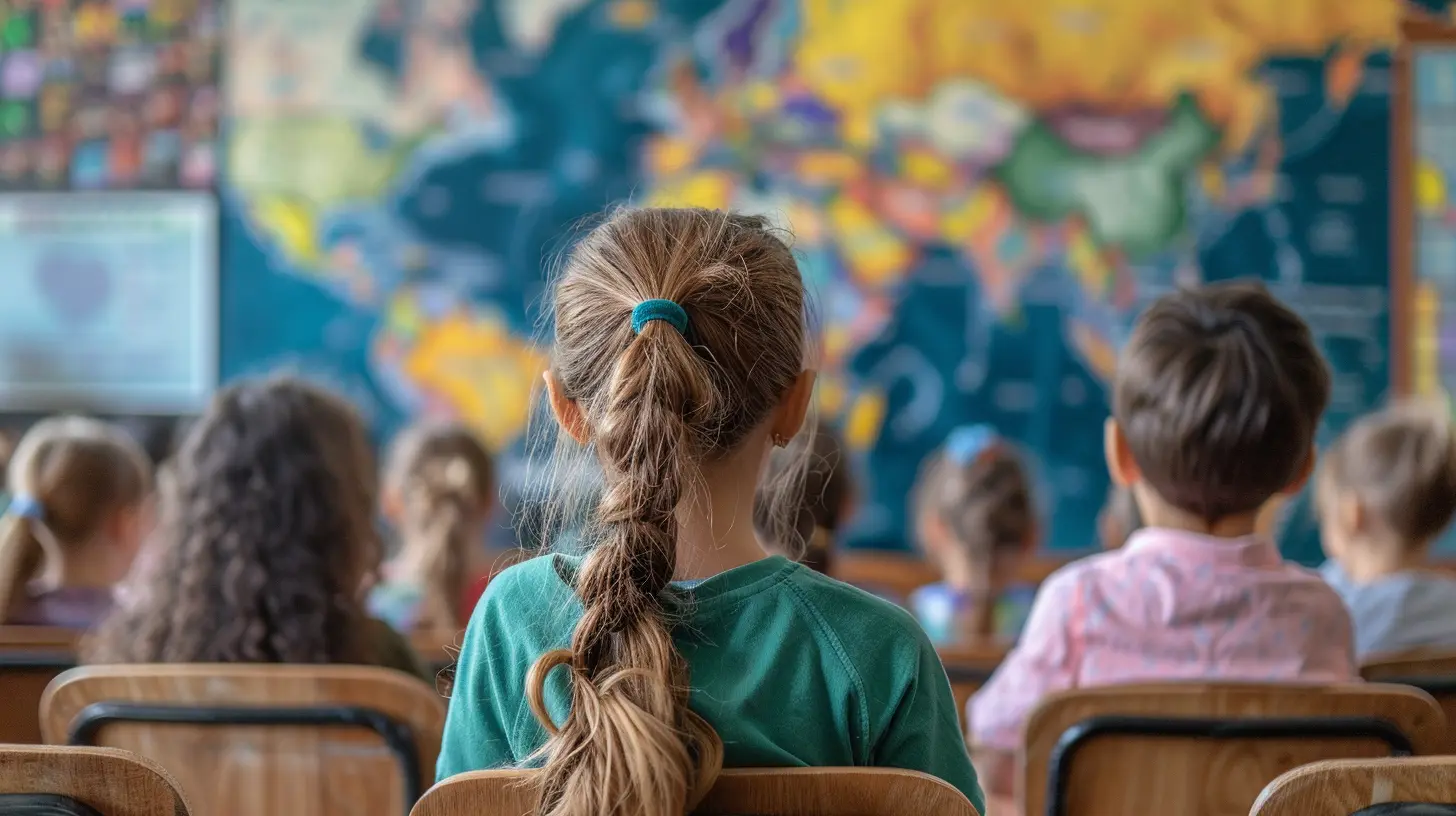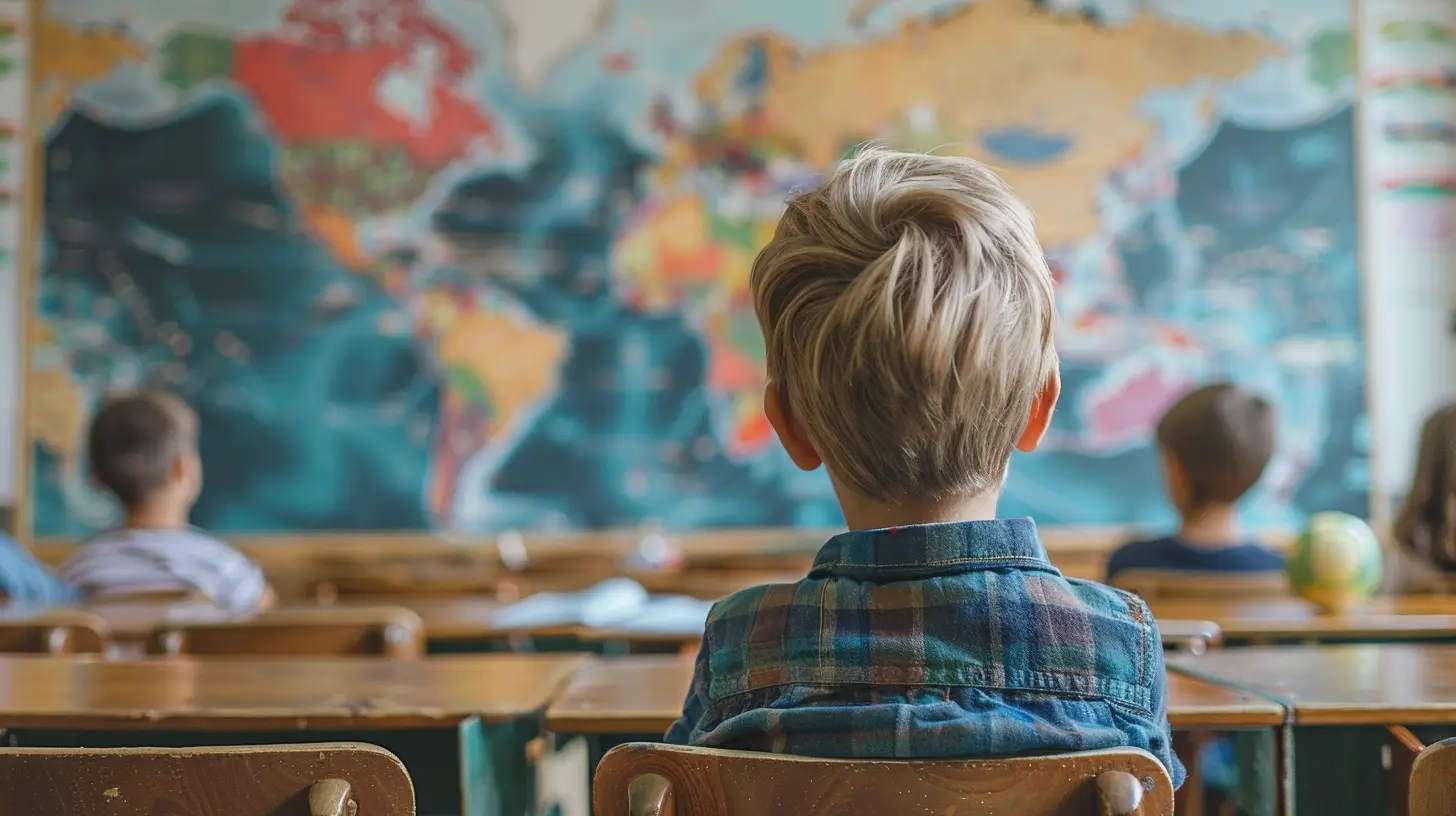How Schools Can Better Prepare Students for a Globalized World
8 November 2025
We live in a world that's more connected than ever. Thanks to technology and international trade, cultures, economies, and people interact on a global scale. But here's the big question: are schools preparing students for this interconnected world?
Many schools still follow traditional teaching models that were designed for a different time. The reality is, if we don’t equip students with the right skills and mindset, they may struggle to compete in the global job market. So, what can schools do to ensure students are ready for a globalized world? Let’s dive in! 
1. Emphasizing Cultural Awareness and Diversity
Understanding Different Perspectives
One of the most important skills students need is the ability to understand and respect different cultures. In a globalized world, people work with teams from diverse backgrounds. If students don’t develop cultural sensitivity, they might struggle in environments where collaboration across borders is essential.Encouraging Multicultural Education
Schools can introduce students to different cultures through:- Curriculum updates – Including literature, history, and case studies from various regions.
- Language learning – Encouraging students to learn multiple languages, which not only enhances communication but also boosts cognitive skills.
- Exchange programs – Giving students opportunities to interact with peers from other countries.
Imagine stepping into a room where everyone speaks a different language and holds unique values. Wouldn’t it be easier to engage if you already had some exposure to diverse perspectives? 
2. Enhancing Communication Skills
The Importance of Effective Communication
In a global workplace, clear communication is crucial. Students should learn how to express themselves effectively, both in written and spoken formats. Whether they’re sending an email to a colleague in another country or presenting an idea in an international setting, communication plays a key role.How Schools Can Help
To improve communication skills, schools can:- Prioritize public speaking – Encourage students to participate in debates, presentations, and storytelling exercises.
- Incorporate collaborative projects – Group assignments with diverse teams help build real-world communication skills.
- Teach digital communication – Understanding professional email etiquette, video conferencing, and social media interaction in a global context is essential.
Good communication isn't just about speaking well; it’s about knowing how to listen and adapt to different audiences. 
3. Encouraging Critical Thinking and Problem-Solving
Thinking Beyond Borders
In a fast-changing world, students need to be problem-solvers. They must analyze situations critically and come up with innovative solutions. Memorizing facts won’t cut it!Building Critical Thinking Skills
Schools can cultivate these abilities by:- Implementing project-based learning – Encouraging students to tackle real-world problems.
- Asking open-ended questions – Instead of spoon-feeding answers, teachers should prompt students to think deeply.
- Teaching media literacy – In a world full of misinformation, students need to differentiate between credible sources and biased content.
Ultimately, the ability to think on one’s feet and approach challenges with creativity is what sets successful individuals apart in a globalized world. 
4. Preparing Students for a Tech-Driven Future
The Role of Technology in Globalization
Technology is at the heart of globalization. From artificial intelligence to virtual meetings, digital tools have transformed how people connect and work. Yet, many schools still lag behind when it comes to incorporating technology into learning.How Schools Can Integrate Technology
To prepare students for tech-driven careers, schools should:- Introduce coding and digital literacy – Understanding basic programming and data analysis is as essential as reading and writing in today’s world.
- Use online collaboration tools – Platforms like Google Docs, Slack, and Zoom are common in workplaces. Familiarizing students early can give them an edge.
- Teach cybersecurity basics – Being tech-savvy also means knowing how to protect personal and professional information online.
The world is going digital, and schools need to ensure students don’t get left behind.
5. Developing an Entrepreneurial Mindset
Beyond Traditional Careers
Gone are the days when students graduated and immediately found a stable job in their hometown. Many now enter freelance work, launch startups, or collaborate with teams across continents. Schools must foster an entrepreneurial mindset to help students adapt.Encouraging Innovation
Here’s how schools can cultivate entrepreneurship:- Teach financial literacy – Students should learn how to manage money, invest, and understand global markets.
- Encourage creativity – Innovation should be rewarded, whether it’s through hackathons, business competitions, or design challenges.
- Provide mentorship opportunities – Connecting students with global business leaders can open their minds to new possibilities.
Imagine if the next Steve Jobs or Elon Musk is sitting in a classroom right now but isn’t getting the right encouragement. Schools need to nurture creativity and problem-solving skills from an early age.
6. Promoting Global Collaboration and Experiences
Learning Beyond Borders
Why should education stay confined to the four walls of a classroom when globalization allows students to connect with the world?Practical Steps to Promote Global Engagement
To make learning more international, schools can:- Encourage virtual exchange programs – Students can collaborate on projects with peers from different countries.
- Introduce international competitions – Math, science, and debate competitions help students test their skills at a global level.
- Offer internships with global companies – Exposure to international work culture helps students transition smoothly into the professional world.
The more students engage with international experiences, the more confident they become in navigating global opportunities.
7. Reinventing the Education System for the Future
Moving Away from Memorization
Many schools still emphasize rote memorization over practical skills. But in a world where information is just a Google search away, what really matters is how students apply their knowledge.Shifting Towards Skill-Based Learning
To modernize education, schools should focus on:- Interdisciplinary learning – Instead of siloed subjects, combining elements of science, humanities, and arts can encourage well-rounded thinking.
- Real-world applications – Lessons should connect to real-life scenarios to make learning more meaningful.
- Personalized learning paths – Technology allows students to learn at their own pace based on their strengths and interests.
Education shouldn’t be about passing tests; it should be about building skills that prepare students for life.
Final Thoughts
Preparing students for a globalized world requires more than just teaching math and science. Schools must focus on cultural awareness, communication, critical thinking, technology, entrepreneurship, and global experiences.The world is changing fast, and students need to be equipped with the right skills to thrive in a competitive, interconnected society. Schools have a responsibility to ensure they’re not just producing graduates, but global citizens who can adapt, innovate, and lead in the future.
So, the question isn’t whether globalization is coming—it’s already here. The real question is: are our schools ready?
all images in this post were generated using AI tools
Category:
Education ReformAuthor:

Anita Harmon
Discussion
rate this article
1 comments
Hayden Bailey
Schools must integrate global studies, cultural competencies, and technology in curricula to equip students with essential skills for a interconnected future.
November 8, 2025 at 5:14 AM

Anita Harmon
I completely agree! Integrating global studies and cultural competencies with technology is crucial for preparing students to thrive in an interconnected world.


